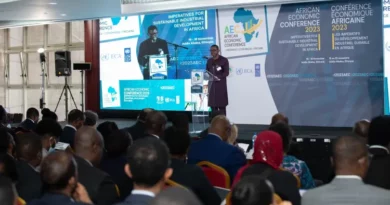Zambia Launches World Breastfeeding Week 2025 with Renewed Commitment to Child Nutrition and Health
The Ministry of Health, in partnership with UNICEF and the World Health Organization (WHO), officially launched World Breastfeeding Week 2025 with a call for increased support, investment, and coordination to reverse Zambia’s declining exclusive breastfeeding rates and safeguard child health.
Speaking at the launch event held in the Ministry of Health Boardroom, representatives from government and cooperating partners reaffirmed their commitment to protecting and promoting breastfeeding as a vital public health intervention.
Dr. Nej Mudin Kedir Bilal, UNICEF Country Representative (a.i), delivered remarks on behalf of WHO and UNICEF, highlighting that while 64% of Zambian infants are now exclusively breastfed, a strong achievement, this marks a decline from previous years. According to Zambia’s Demographic Health Surveys, exclusive breastfeeding rates have fallen from 73% in 2014 to 64% in 2024, despite earlier progress.
“This year’s theme emphasizes that breastfeeding is not just a personal act, but a shared responsibility that supports child survival, development, and health,” said Dr. Bilal. “It is a human right and a critical investment in our nation’s future.”
Hon. Dr. Elijah Julaki Muchima, Minister of Health, and Hon. Brenda Mwika Tambatamba, Minister of Labour and Social Security, both attended the event alongside representatives from ILO, WHO, and national stakeholders, including the National Food and Nutrition Commission (NFNC).
In a joint address, WHO and UNICEF outlined seven key priority actions to boost breastfeeding outcomes in Zambia:
- Increased funding for breastfeeding support in budget planning.
- Stronger enforcement of the Code of Marketing of Breastmilk Substitutes.
- Family-friendly workplace policies, including breastfeeding breaks.
- Expansion of the Baby-Friendly Hospital Initiative.
- Improved access to breastfeeding counselling in healthcare and communities.
- Enhanced monitoring and accountability of national breastfeeding efforts.
- Breastfeeding support in emergencies, especially during crises.
The event also marked Global Breastfeeding Day, commemorated annually on August 1st. The UN agencies urged stronger multi-sectoral action and coordination to meet the World Health Assembly’s global target of 50% exclusive breastfeeding by 2025.
“Let us work together to ensure every child in Zambia receives the best possible start in life,” concluded Dr. Bilal, reaffirming the partners’ pledge to support Zambia’s national breastfeeding agenda through advocacy, funding, and technical assistance.



